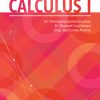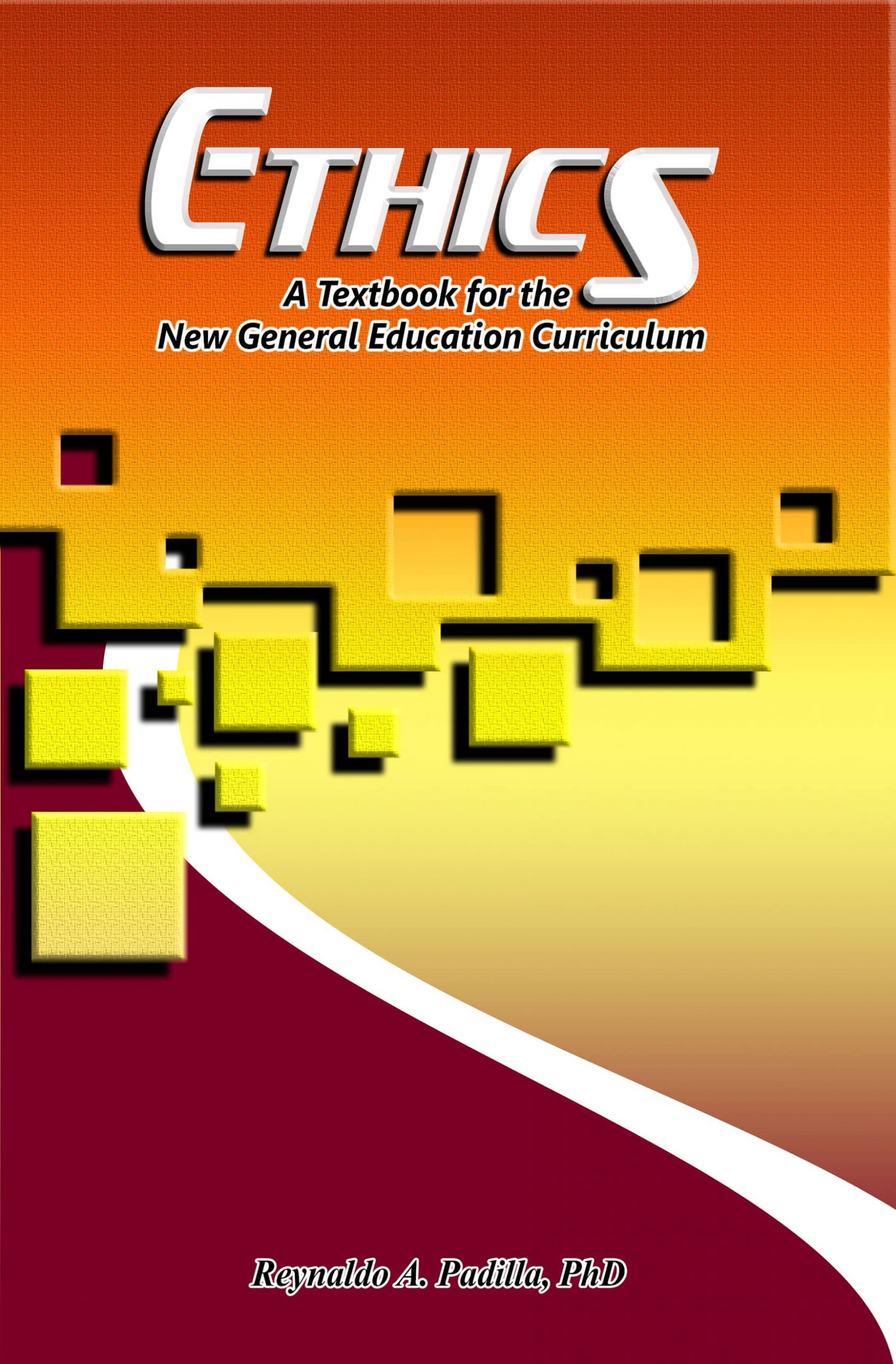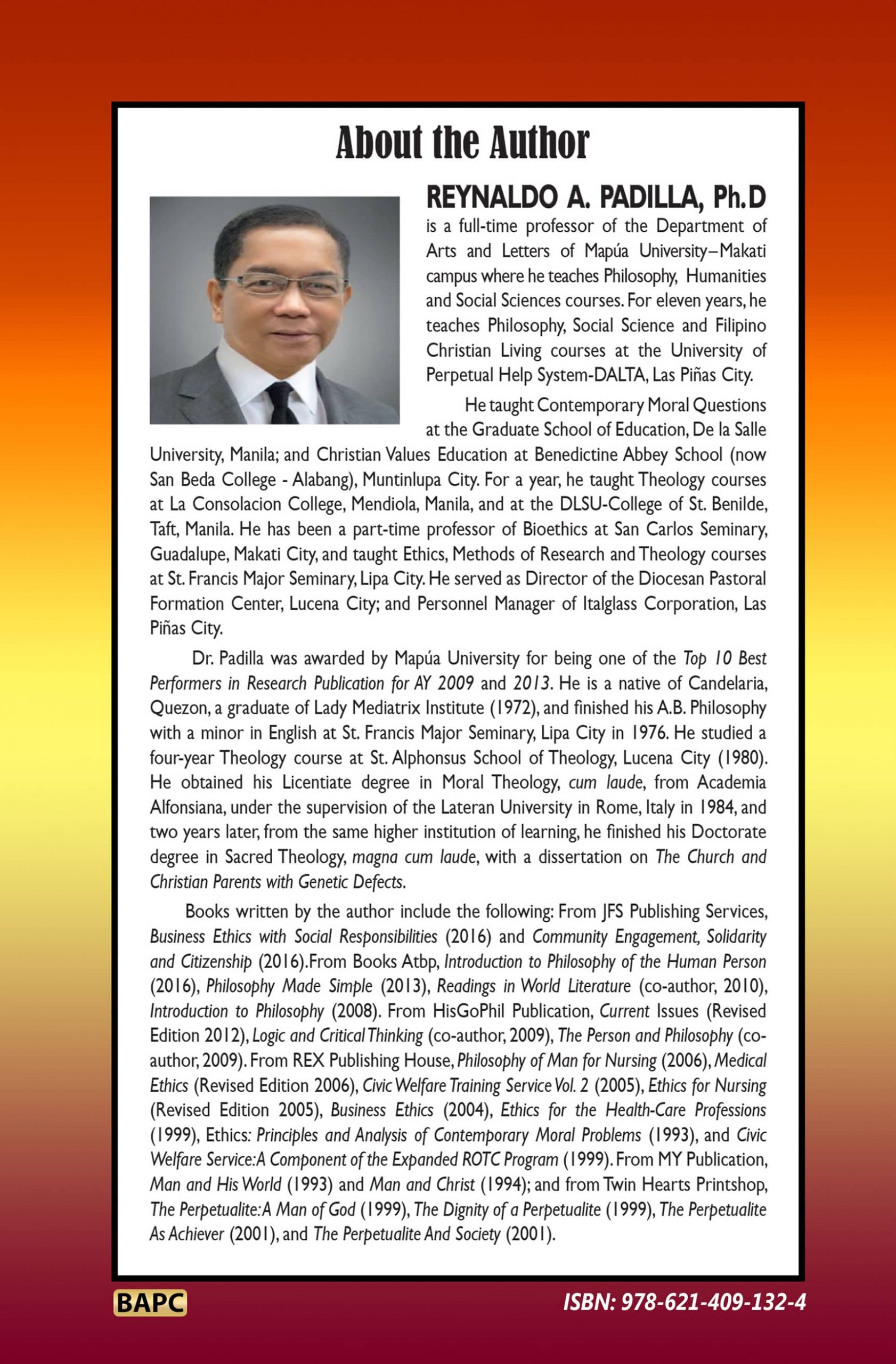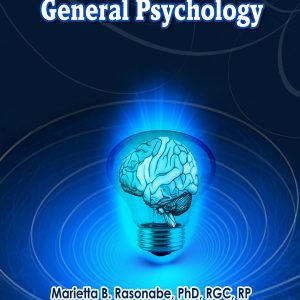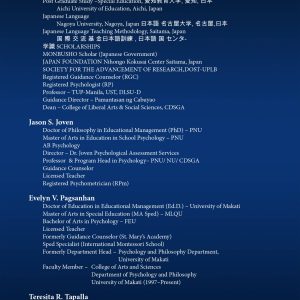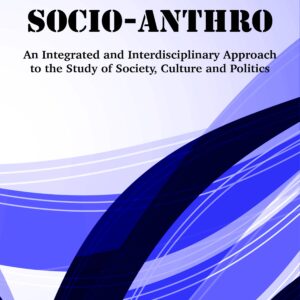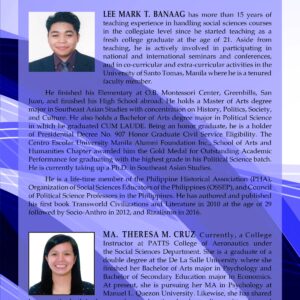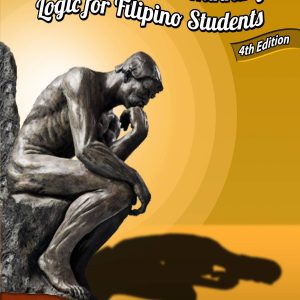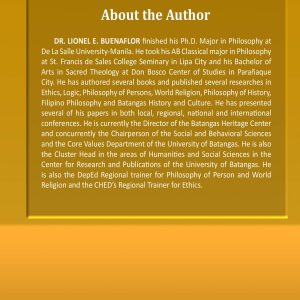Ethics (A Textbook for the New General Education Curriculum)
₱275.00
ISBN: 978–621–409-132–4
Author:Reynaldo A. Padilla
Description
ISBN: 978–621–409-132–4
Author: Reynaldo A. Padilla
Additional information
| Book Type | Hard Copy, e-book |
|---|
Table of Contents
Table of Contents
Dedication…………………………………………………………………………………… iii
Preface…………………………………………………………………………………………. v
INTRODUCTION: KEY CONCEPTS 1 — PHILOSOPHICAL
FOUNDATIONS…………………………………………………………………… 1
The Nature of Ethics……………………………………………………………… 3
Definitions and Purpose of Ethics…………………………………………. 4
The Material and Formal Object of Ethics…………………………….. 5
Morality and Etiquette………………………………………………………….. 5
Morality and the Law……………………………………………………………. 6
Division of Ethics………………………………………………………………….. 9
Basis of Christian Ethics……………………………………………………….. 9
Approaches to the Study of Morality…………………………………….. 10
The Norm of Morality…………………………………………………………… 12
Exercise 1: Questions for Review……………………………………….. 15
Exercise 2: Research and Evaluation………………………………….. 19
Exercise 3: Questions for Discussion…………………………………. 21
INTRODUCTION: KEY CONCEPTS 2 — KNOWING A LITTLE
THEORY: THREE APPROACHES TO ETHICS………………………………. 27
Basic Types of Ethical Theories……………………………………………… 27
Each Theory Is Limited…………………………………………………………. 29
What to Consider…………………………………………………………………. 31
Ethics and Good Judgment…………………………………………………… 32
There’s No Choice but to Choose………………………………………….. 33
Finding a Way to Decide………………………………………………………. 35
Exercise 4: Ethical Dilemma………………………………………………. 39
Class Activity: Film Showing………………………………………………. 43
PART 1: THE MORAL AGENT…………………………………………………………. 45
Introduction…………………………………………………………………………. 47
Culture as Source of Ethical Belief………………………………………… 48
General Understanding of Culture………………………………………… 48
Culture and Moral Behavior…………………………………………………. 51
Cultural Relativism……………………………………………………………….. 53
Basic Concepts relating to Cultural Relativism……………………… 53
Exercise 5: Concept Evaluation………………………………………….. 55
Asian and Filipino Morality………………………………………………….. 57
Exercise 6: What Do I Owe an Elderly Parent?…………………… 61
The Problem: The Biological versus the Ethical……………………… 63
Caring for the Elderly: Tradition…………………………………………… 64
Caring for the Elderly: Today………………………………………………… 65
Family Obligations……………………………………………………………….. 66
Actions are More Important than Feelings……………………………. 66
Moral Character Development……………………………………………… 67
Stages of Moral Development……………………………………………….. 68
Exercise 7: Recollection —Moral Character Development… 73
PART II: THE ACT………………………………………………………………………… 77
Human Act and Act of Man………………………………………………….. 79
Elements Determining Morality……………………………………………. 80
Criteria for Moral Judgment…………………………………………………. 82
Exercise 8: Questions for Review and Case Evaluation……… 85
Feelings………………………………………………………………………………… 89
7-Step of Moral Reasoning Process……………………………………….. 93
Reason and Impartiality……………………………………………………….. 95
Moral Courage……………………………………………………………………… 96
Exercise 9: Questions for Review and Scriptural
Message Evaluation………………………………………………………. 99
Class Activity: Film Showing………………………………………………. 103
PART III: FRAMEWORKS AND PRINCIPLES…………………………………. 105
Virtue Ethics: Aristotle………………………………………………………….. 107
Four Forms of Virtue Ethics………………………………………………….. 110
Virtue Ethics: Aquinas and the Natural Law………………………….. 112
Your Opinion Please!……………………………………………………………. 116
Kant and Rights Theorists…………………………………………………….. 121
Exercise 10: Questions for Evaluation
and Class Discussion……………………………………………………. 123
Utilitarianism……………………………………………………………………….. 125
The Hedonic Calculus…………………………………………………………… 126
Four Points about Utilitarianism…………………………………………… 128
Exercise 11: Case for Evaluation………………………………………… 131
Justice and Fairness………………………………………………………………. 133
The Concept of Fairness……………………………………………………….. 135
The Problem: Choosing Among Talent, Need, and Goodness.. 137
Those in Need: The Difference Between Can’t and Won’t………. 137
Merit: What a Person Deserves…………………………………………….. 139
Merit: The Relationship to Being Good…………………………………. 140
Love and Care: Are These Fairness?………………………………………. 142
Exercise 12: Cases for Study and Discussion……………………… 143
State and Citizens: Taxation………………………………………………….. 145
Legalized Confiscation………………………………………………………….. 147
Moral Obligation and Fair Share…………………………………………… 148
Tax Avoidance………………………………………………………………………. 149
Complexity…………………………………………………………………………… 151
Financial Support to One’s Church……………………………………….. 152
CONCLUSION……………………………………………………………………………………… 155
Filipino First Policy………………………………………………………………. 159
The Filipino First Policy Caused the Philippines to Fail………… 160
Exercise 13: The Other View………………………………………………. 163
Religion and Ethics……………………………………………………………….. 165
The Challenge of “Filinnials”………………………………………………… 170
Key Trends……………………………………………………………………………. 171
REFERENCES……………………………………………………………………………… 175
